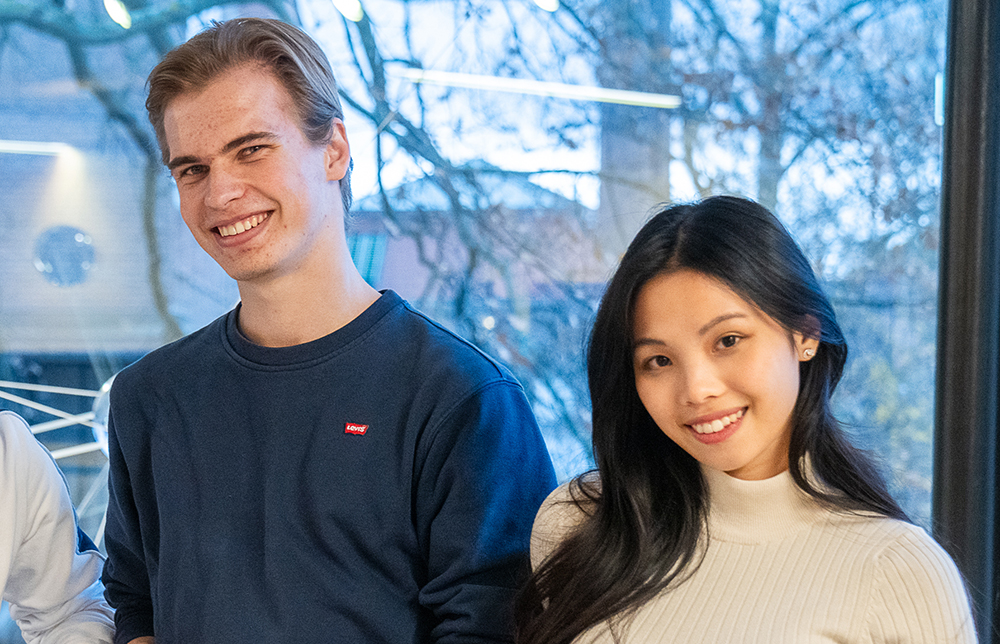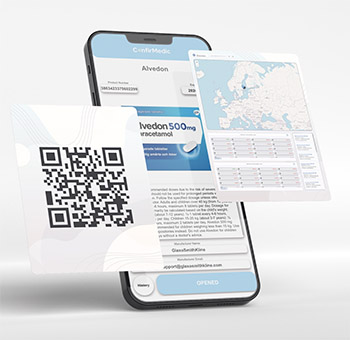Students' software would protect against counterfeit medicines

Two students from KTH Royal Institute of Technology have invented a solution to tackle the problem of counterfeit and substandard medications, which account for nearly half a million deaths annually in Africa alone.
Counterfeits and substandard medications comprise about 10 percent of the world’s medicine supply, according the World Health Organization (WHO). Civil engineering students Kristina Hoang and Fabian Forsberg want to change that.
“It is very profitable to counterfeit medicines because they have a high-profit margin,” Hoang says. “Patients often have no choice but to buy cheap, fake alternatives. Sometimes these work, sometimes they don’t, and patients take the risk because they cannot afford the genuine product.”
Fake malaria medicine kills hundreds of thousands
Both Hoang and Forsberg are in the Industrial Engineering programme at KTH, and they have received support from KTH Innovation to develop their product for market.
The need is critical. More than 250,000 people die annually from fake malaria medicine. About 170,000 people, mainly children, die each year from counterfeit drugs that claim to treat pneumonia.
“Half a million people die every year in Africa alone,” Forsberg says, citing UN data. “The global figure is likely much higher since the problem is also widespread in Southeast Asia.”
Global market worth upwards of $200 billion
The students' software is a system that tracks serial numbers of medications at each stage of a product's supply chain. This works because each party handling a given product records which serial numbers they receive and pass on.

"This way, medicines can be traced all the way to the pharmacy, ensuring that products are genuine when they reach the end consumer. By using our app, pharmacies and patients can easily scan and verify the serial number of the medicine to confirm its authenticity," Forsberg says.
He adds that the global market for counterfeit drugs and medicines is valued at between 200 and 432 billion dollars, a very large black market.
"In addition, the problem mainly affects those who are already financially vulnerable, which is another important economic aspect of the problem," Hoang says.
On the market as soon as possible
Originally, Hoang and Forsberg developed authentication solutions for luxury goods. However, it didn’t take long for them to realise there was a greater need globally for verifying medicines.
When do you expect the software to be on the market?
“We have a minimum viable product and want to start pilot testing as soon as possible to further develop the product, based on customer needs. The goal is to have a finished product on the market as soon as possible,” Hoang says.
She says the software is primarily aimed at drug regulatory authorities in regions where the problem of counterfeit medication is most severe. The software is designed so that both pharmacies and patients can use the solution to verify that the medicine they purchase is genuine.
Text: Peter Asplund
